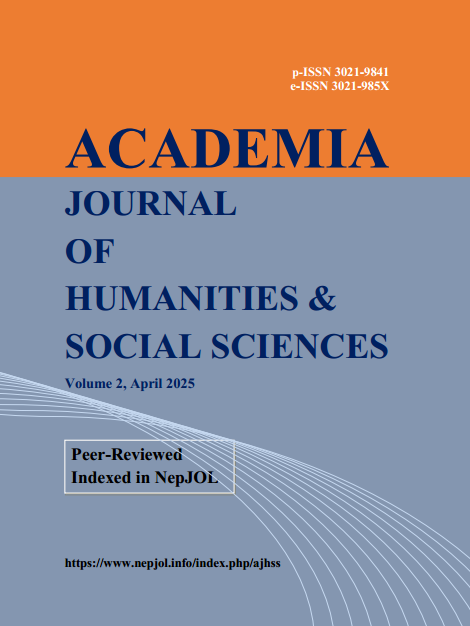Sustainability of Homestay Tourism in Poverty Alleviation Programs in Nepal
DOI:
https://doi.org/10.3126/ajhss.v2i1.77163Keywords:
Homestay tourism, poverty alleviation, sustainable development, rural empowermentAbstract
Homestay tourism has emerged as a significant strategy for rural development and poverty alleviation in Nepal. Unlike traditional tourism, it provides a sustainable model by allowing tourists to stay with local families, promoting cultural exchange while directly contributing to the livelihoods of host communities. This model is particularly beneficial for rural areas, where tourism can foster economic, social, and cultural growth. The objective of this paper is to explore the potential of homestay tourism to reduce poverty in the rural areas of Nepal. It seeks to assess the economic, social, and cultural benefits of this tourism model while identifying its challenges and examining how it contributes to the rural development. This study adopts an explanatory sequential mixed-method approach. The primary data were collected through in-depth interviews, surveys, focus group discussions (FGDs), and field observations. The secondary data were gathered from the existing reports and case studies. The purposive and convenience sampling methods were used to ensure the representative insights into the impacts and challenges faced by the homestay tourism operators. The findings of the study suggest that homestay tourism plays a significant role in empowering the marginalized communities, preserving cultural heritage, and promoting inclusive development. It creates jobs, improves living conditions, and reduces poverty by encouraging community participation, fair resource distribution, and sustainable policies. However, the challenges such as inadequate infrastructure, lack of training, and insufficient government support hinder its potential. Other issues include seasonal fluctuations, gender and social inequalities, and infrastructure limitations. Homestay tourism has the potential to be a powerful tool for rural development and poverty alleviation in Nepal. To maximize its benefits, targeted interventions are needed, including improved policies, infrastructure development, and capacity-building efforts. The paper underscores the importance of community participation and sustainable practices to ensure a long-term success of homestay tourism and equitable distribution of benefits.





